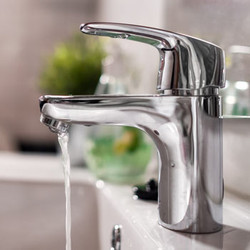What is the Best Water Filtration System?
Posted by Pure Aqua, Inc. on Mar 31st 2020
Many industries that are concerned about the security of their water supply depend on a quality water filtration system to enhance their water quality. The question then becomes, what water filtration system do i need?
In order to find the right answer for this question you should conduct a water rest to ascertain which contaminants exist in your water. Most general water filtration applications that include the removal of pollutants (sand, suspended solids, particles, phosphorus, metals) from water sources such as rivers, lakes, and streams require media filters.
Other water bodies that comprise unwanted organic substances, chlorine, bad taste & odor are purified more effectively through carbon filtration. The next section will go in more detail regarding these two primary forms of water filtration.
Types of Water Filtration Systems
As aforementioned, most applications that necessitate the incorporation of water filtration utilize media filters. Water media filters are used to decrease high levels of TSS (total suspended solids and SDI (silt density index), both of which cause a myriad of issues when exposed to businesses or humans.
For instance, suspended solids have been known to lead to turbidity which produces foul odor, bad taste, color alterations, and overall lower water quality. Commercial establishments such as restaurants that serve beverages will be unable to use such type of water for fear of contaminating their final products.
There are several different kinds of water filtration systems available that are designed for specific requirements. Choosing the right media filtration will rely on various factors that must be determined before achieving ideal filtration results such as:
- Water monitoring and testing
- Desired water quality
- A specified flow rate
- Degree of suspended solids and turbidity
- Acceptable level of water for backwashing filtration
Water sources that are prevalent with unwanted odor, taste, and large amounts of chlorine are better suited for removal via carbon water filtration. While carbon water filters alone will not suffice in removing these pollutants entirely, the process will be sufficient in reducing them by a significant degree for further purification with reverse osmosis systems.
RO systems are highly effective in removing these types of contaminants in low levels, but will actually be negatively affected when exposed to high levels. Total organic compounds (TOC) are especially prone to damage water treatment systems and are necessary to treat with carbon water filters before allowing the feed water for complete purification.
The most common method for removing iron from water is to use multi-media filtration. These filters are known for their ability to remove total suspended solid from water, resulting in extremely clean water.
 ENGLISH
ENGLISH
 ESPAÑOL
ESPAÑOL العربية
العربية PORTUGUÉS
PORTUGUÉS FRANÇAIS
FRANÇAIS

